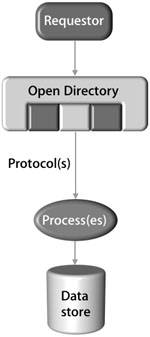Defining Directory-Services Terminology
| Now that you have seen the very basics of directory services and to avoid any confusion with similar terms used in different contexts, the following definitions apply to the terms used in the directory services lessons of this book:
By defining certain aspects of the directory structure, it's easy to see how these pieces work together to provide the requestor with information from the data store. |
EAN: 2147483647
Pages: 258
